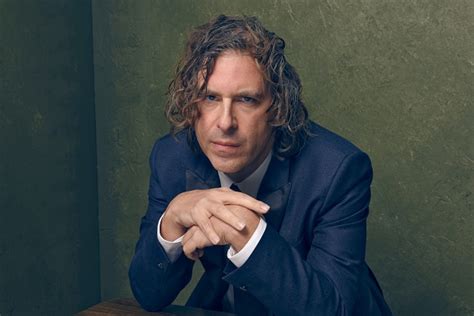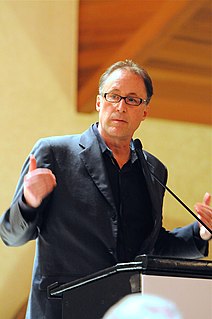A Quote by Susan Sontag
I'm interested in the possibility of fiction which straddles narrative and essay.
Quote Topics
Related Quotes
Fiction stymies me with its possibility. I can't see the bottom and I freeze, cling to the side, or just choke. In nonfiction, particularly that which takes personal narrative for its primary topic, I have a finite space and a finite amount of material. I can't fabricate material, I can only shape and burrow into it.
There is really no fiction or non-fiction; there is only narrative. One mode of perception has no greater claim on the truth than the other; that the distance has perhaps to do with distance - narrative distance - from the characters; it has to do with the kind of voice that is talking, but it certainly hasn't to do with the common distribution between fact and imagination.
Science fiction is a weird category, because it's the only area of fiction I can think of where the story is not of primary importance. Science fiction tends to be more about the science, or the invention of the fantasy world, or the political allegory. When I left science fiction, I said "They're more interested in planets, and I'm interested in people."
Of course it's possible for political essays to be artful. I just want to call into question the dominance of content over form in the history of the essay. I want us to recognize that there's art involved in making this stuff, because we still don't approach the constructed nature of the essay with the same appreciation that we do poetry or fiction.
Back in the day, a lot of our instructors in nonfiction were actually fiction scholars. So they would bring in stories as models for the essay. And in some ways that's a good idea, because we can all learn from other genres. But I think it also made me realize that I literally didn't have an essay model, and that if I wanted one I would have to find it.
I began as a fiction writer - I had written three novels in my 20s and 30s. But as my work has gravitated towards literary nonfiction, or lyric essay or poetic essay, whatever you want to call it, I'm constantly beating my head against the wall 'cause I'm teaching a genre that's no longer that exciting to me and that I'm no longer practicing.
Probably the biggest influence on my career was the late John Hersey, who, while he was at 'The New Yorker,' wrote one of the masterpieces of narrative non-fiction, 'Hiroshima.' Hersey was a teacher of mine at Yale, and a friend. He got me to see the possibility of journalism not just as a business but as an art form.


































